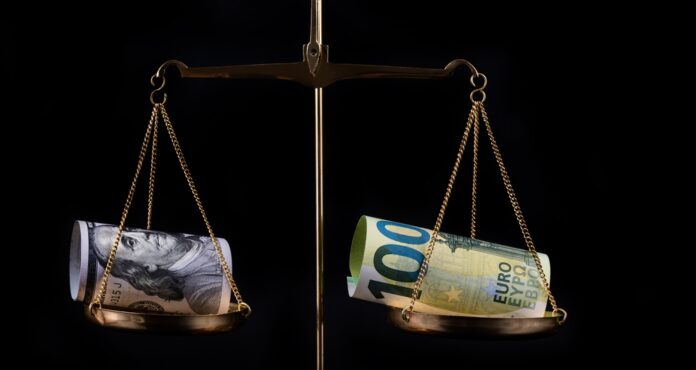The U.S. dollar dropped sharply on Monday, starting the week under pressure as escalating trade tensions fueled concerns over a potential economic slowdown.
By 03:00 ET (08:00 GMT), the Dollar Index — which measures the greenback against a basket of six major currencies — fell 0.6% to 98.630, hovering near its April 22 low.
Dollar Falls Amid Renewed Trade Tensions
The decline followed comments from China’s commerce ministry rejecting U.S. President Donald Trump’s accusations that Beijing had breached the consensus reached during trade talks in Geneva. Beijing labeled the claims as “groundless” and vowed strong countermeasures to protect its interests.
Trump said Friday that China had violated a bilateral agreement to roll back tariffs and announced plans to double duties on imported steel and aluminum to 50% starting Wednesday.
“It’s not quite fair to say that the U.S.-China trade deal is unraveling, but both sides clearly seem frustrated,” analysts at ING noted. “An early end to the deal, which is set to expire on August 12, would hurt risk assets and weigh further on the dollar.”
Traders are increasingly cautious as they await key economic reports this week, particularly Friday’s May nonfarm payrolls. The labor market report is expected to show 130,000 new jobs added, a decline from April’s stronger-than-expected 177,000.
Euro Rises Ahead of ECB Decision
The euro gained ground, with EUR/USD up 0.7% at 1.1430, supported by dollar weakness and anticipation surrounding Thursday’s European Central Bank (ECB) meeting. The ECB is widely expected to cut interest rates by 25 basis points to 2%, marking its eighth reduction in the past year.
With the rate cut seen as a given, market focus will shift to whether the ECB signals a possible pause in July, as recent data suggest the eurozone economy is holding up better than expected.
The latest HCOB Eurozone Manufacturing PMI rose to 49.4 in May from 49.0 in April — a 33-month high, nearing stabilization.
Pound Gains on Strong Housing Data
In the U.K., GBP/USD climbed 0.6% to 1.3547, as sterling drew support from stronger-than-expected housing data. Nationwide reported a 3.5% year-on-year rise in house prices for May, with a monthly gain of 0.5%, reversing most of April’s decline.
“Improved housing data could be a bright spot for the U.K. economy as rate cuts continue,” ING commented.
Yen Strengthens on Safe-Haven Demand
In Asia, the Japanese yen gained ground, with USD/JPY down 0.8% at 142.88, as investors sought safety amid rising global trade tensions and uncertainty surrounding U.S.-Japan negotiations.
Meanwhile, the USD/CNY rose 0.2% to 7.1998, with the Chinese yuan slightly weaker despite a local holiday, pressured by the escalating war of words between Beijing and Washington.



